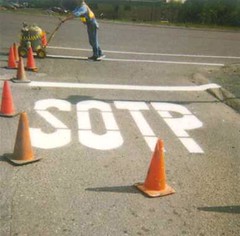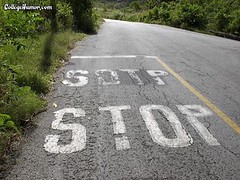The Seduction of Praxis
 Citizens need to provide oversight of government actions.
Citizens need to provide oversight of government actions.Praxis is a complex activity by which individuals create culture and society, and become critically conscious human beings. Praxis comprises a cycle of action-reflection-action which is central to liberatory education. Characteristics of praxis include self-determination (as opposed to coercion), intentionality (as opposed to reaction), creativity (as opposed to homogeneity), and rationality (as opposed to chance).
prax·is (prāksīs)
n. pl. prax·es (prāksēz)
1. Practical application or exercise of a branch of learning.
2. Habitual or established practice; custom.
[Medieval Latin prāxis, from Greek prāxis, from prāssein, prāg-, to do.]
I met with someone yesterday and among other things, we discussed blogging, and how what I write links theory and practice in unusual ways, focused on trying to enhance and extend livability in the City of Washington (primarily, although what I write can be universally applied). He made the point that this particular blog is somewhat unique in the local blog universe. (More things we covered in our meeting--in particular data, GIS, and information architecture issues concerning local government--will trickle out in the blog over the next few months...)
Similarly, Stop, Blog, and Roll discussed neighborhood" blogs that are shaping how that blog will develop going forward, and in commenting about mine described it as about "community from a much more policy oriented point of view."
After these encounters, last night I was reading the week old Sunday edition of the Boston Globe and came across an interesting article about one of the earliest books about ecology, Gilbert White's The Natural History of Selborne, a collection of letters on the birds and beasts of his parish.
The book was published in 1788, and "opened a new chapter in 'natural philosophy'" based on White's belief that "naturalists must study 'the life and convesation of animals' by relying on their own observations in the field rather than Royal Society papers or taxonomies conducted on laboratory slabs." White combined "the objective rigor of a scientific treatise with a warmblooded reverence for all local creatures great and small."
(See "The naturalist: How a country clergyman's backyard jottings influenced Darwin, enchanted readers the world over, and inspired a New York Times editorialist to write a novel in the voice of a tortoise.")
White probably set too high of a bar for me--I like buildings more than people (the local creatures that habitate cities), and I am particularly interested in identifying systems and processes, rather than believing that everything is unique, uninterpretable, and ungeneralizable.
More importantly, I do this hoping to short circuit program failure, thereby increasing the likelihood of success.
At the same time that I enjoy theory and identifying best practices and/or choke points, I want to see implementation. In DC, people like me can influence things--planning processes, legislation, historic landmark nominations--which is a lot harder to do elsewhere.
It's not easy though.
 Oddly enough, these photos are not from the District of Columbia.
Oddly enough, these photos are not from the District of Columbia.Index Keywords: civic-engagement



0 Comments:
Post a Comment
<< Home